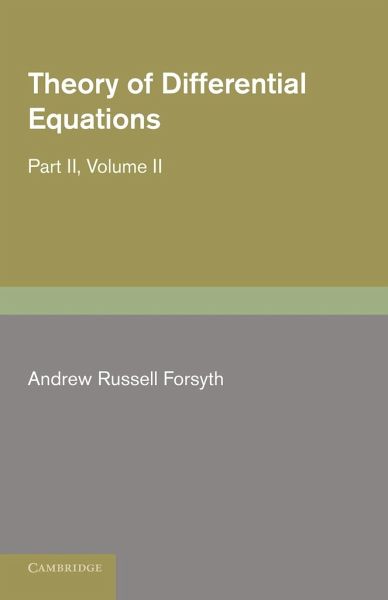
Theory of Differential Equations
Versandkostenfrei!
Versandfertig in 1-2 Wochen
48,99 €
inkl. MwSt.

PAYBACK Punkte
24 °P sammeln!
Andrew Russell Forsyth (1858-1942) was an influential Scottish mathematician notable for incorporating the advances of Continental mathematics within the British tradition. Originally published in 1900, this book constitutes the second of six volumes in Forsyth's Theory of Differential Equations series, concentrating specifically on ordinary equations which are not linear. The text contains detailed information on the development of this area and substantial contributions made to it. All sources are quoted in their proper connection and a few fresh investigations are added. Examples are given,...
Andrew Russell Forsyth (1858-1942) was an influential Scottish mathematician notable for incorporating the advances of Continental mathematics within the British tradition. Originally published in 1900, this book constitutes the second of six volumes in Forsyth's Theory of Differential Equations series, concentrating specifically on ordinary equations which are not linear. The text contains detailed information on the development of this area and substantial contributions made to it. All sources are quoted in their proper connection and a few fresh investigations are added. Examples are given, where necessary, in order to provide illustrations of various methods. This book will be of value to anyone with an interest in differential equations and the history of mathematics.




